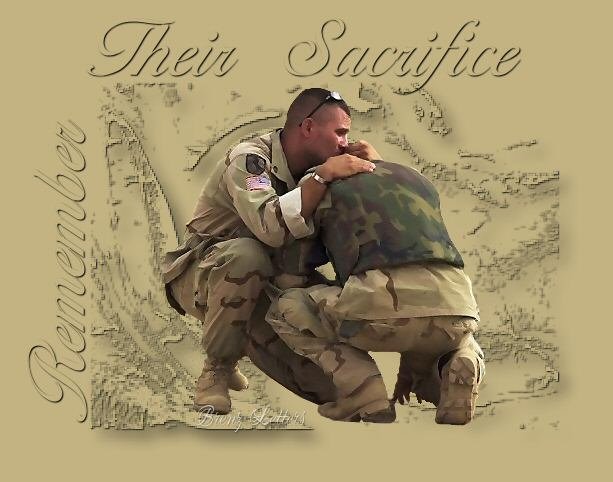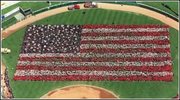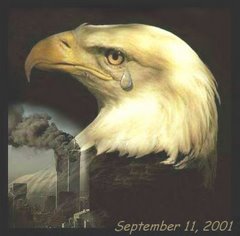War reporting then and now
I am working on a couple (or more) original columns, but in the meantime came across two items that speak to my interest in how wars are reported. During the current Global War on Terror, (yes, I still call it that, ) there have been a number of first person accounts from military personnel in the sandbox. If you really want to know what is going on, pick up one of the great books available. Of course, we also have the blogs written by boots on the ground. These warrior/writers give us immediate first hand accounts that you will not find in the msm. Because of modern technology, our troops can share what they see, and do, almost as it happens. Wasn't always so. Back in the previous world wars, it would often take weeks for a single handwritten letter from the trenches to reach waiting families on the homefront. Those letters were usually full of blacked out sections, too. Today, we also have independent journalists like Michael Yon sending up-to-the-minute reports which provide insights not found elsewhere. You DO read Michael Yon, don't you?
Over D-Day celebrations recently, the BBC ran an interesting article on a technological breakthrough. Read on:
D-Day: A breakthrough for war reporting
BBC World Service
 The 'midget' recording device was revolutionary for the time
The 'midget' recording device was revolutionary for the timeSaturday marks the 65th anniversary of D-Day, the Allied invasion of occupied Europe on June 6 1944.
Unlike earlier in the war, it was the first time that BBC radio was able to broadcast news back to the UK from the beaches and battlefields of Europe.
Hidden away in a BBC storeroom in central London is a remarkable bit of broadcasting history. It looks rather like a 1950s Dansette record player, redesigned by the British army.
In fact it's a so-called 'midget' recording device made by the BBC for use by correspondents in the field during and after the D-Day invasions.
The BBC's Charles Commander, who guards this priceless bit of broadcasting heritage, pulls it out from under a pile of boxes. "What the BBC considered 'portable' in 1944 is remarkable. But compared to what came before, it did give the reporter freedom to move.
The idea was they could take it through the sand-dunes and round the back roads in Normandy. And it worked: we still have the recordings to prove it."..
Go learn more here.
Today, veterans of the GWOT are also writing books about their experiences. Because of the articulate warrior/writers we have in our midst, there has been a whole new genree of war books released. House to House by David Bellavia is one; The Lone Survivor by Marcus Luttrell is another. Both well worth reading.
Came across a review of another book yesterday. It appears on a blog I found quite recently. Between the Sandhills and the Sea is another homefront blog, written by a Soldiers' Angel who has a personal connection to the GWOT. The book review?:
"War Reporting for Cowards"
When the destruction was finally over, everyone in the Humvee was shouting. This, I thought, is what the will to live sounds like.'YEAH! YEAH! Oh, YEAH!' we all howled in union like the animals we were. 'Targets destroyed,'said the monotone on the radio.Book of the week is War Reporting for Cowards by Chris Ayers. I don't usually enjoy Iraq war books by reporters. Most of them take themselves a little too seriously. Ayers, self-deprecating throughout, does not have this problem.
Ayers describes himself as an accidental war reporter. Writing for The Times of London, he makes his name as a business/financial reporter more familiar with stock prices than NBC gear. His first taste of war came when he had the misfortune of living in New York and covering Wall Street at the time of the September 11th attacks. He also was in the right place-if you will- to cover the anthrax attacks when they befell his office building. Hoping to move towards a life of more glamour and less terror, he makes a move to LA to cover the celebrity beat for The Times.
It is from the Hollywood scene this young reporter is picked to cover the war in Iraq. You follow Chris, a man who had never even been camping, to the mud and dust of the Iraqi desert....
There is much more, and you can find that here. Check it out, and yes, bookmark that blog, or connect to the "following" thingamajig...(tech term.)










































